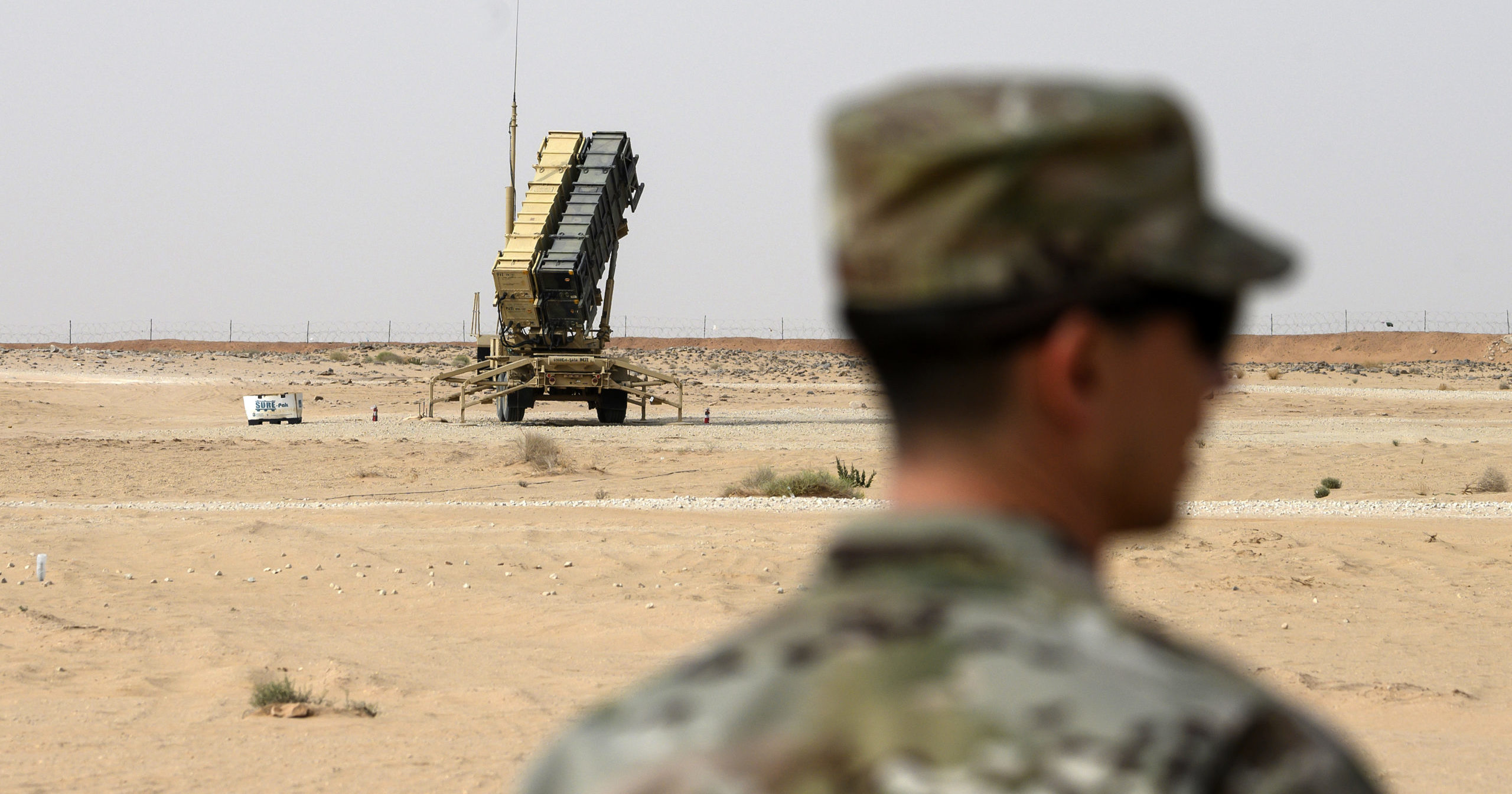
US Military Considering Steps to Guard Against Growing Iranian Threat
The U.S. military is exploring the possibility of using a Red Sea port in Saudi Arabia and an additional two airfields in the kingdom amid heightened tensions with Iran, the military said Tuesday.
While describing the work as “contingency” planning, the U.S. military said it already has tested unloading and shipping cargo overland from Saudi Arabia’s port at Yanbu, a crucial terminal for oil pipelines.
Using Yanbu, as well as air bases at Tabuk and Taif along the Red Sea, would give the American military more options along a crucial waterway that has come under increased threat from suspected mine and drone boat attacks by Yemen’s Iranian-backed Houthi rebels.
However, the announcement comes as Saudi-American relations remain strained by the 2018 killing of Washington Post columnist Jamal Khashoggi and the kingdom’s ongoing war in Yemen.
Deploying — even temporarily — American troops to bases in the kingdom, which is home to the Muslim holy city of Mecca, could reignite anger among Islamic extremists.
U.S. Navy Capt. Bill Urban, a spokesman for Central Command, said the evaluation of the sites had been going on for over a year, sparked by the September 2019 drone and missile attack on the heart of the Saudi oil industry.
Saudi Arabia and the U.S. have blamed that attack, which temporarily halved Saudi oil production and saw a spike in oil prices, on Iran. Tehran has denied being involved and the Houthis claimed responsibility, though the drones involved appear to be Iranian-made.
“These are prudent military planning measures that allow for temporary or conditional access of facilities in the event of a contingency, and are not provocative in any way, nor are they an expansion of the U.S. footprint in the region, in general, or in the kingdom of Saudi Arabia, in particular,” Urban wrote.
U.S. Marine Gen. Frank McKenzie, the head of U.S. Central Command, visited Yanbu on Monday. Saudi officials did not respond to request for comment on Tuesday.
Saudi Arabia has already paid for improvements at the sites and is considering more, Urban said. Tabuk is home to King Faisal Air Base, while Taif is home to King Fahd Air Base.
The Gulf Arab states are home to a vast array of American military bases due to the 1991 Gulf War that saw U.S.-allied forces expel Iraq from Kuwait, and the later 2001 invasion of Afghanistan and 2003 invasion of Iraq. America pulled its forces out of Saudi Arabia after the 9/11 attacks.
U.S. Central Command has a headquarters in Qatar. The U.S. Navy’s 5th Fleet operates from the island kingdom of Bahrain off Saudi Arabia’s coast. Kuwait hosts the U.S. Army Central’s headquarters, while the United Arab Emirates hosts American aviators and sailors.
Those locations don’t include the American troop presence in Afghanistan, Iraq and Syria.
Former President Donald Trump also deployed the first troops into Saudi Arabia since 9/11 over concerns about Iran. Some 2,500 American troops now man fighter jets and missile batteries at Prince Sultan Air Base southeast of Riyadh.
These locations likely would not have permanently stationed troops and could allow the U.S. to withdraw forces at other bases, according to Becca Wasser, a fellow at the Washington-based Center for a New American Security.
The Persian Gulf “would be contested waters under any scenario of armed conflict with Iran, so you look at the places where you would move your forces as they enter the theater from being in a contested area,” McKenzie told journalists in Yanbu.
Alireza Miryousefi, a spokesman for Iran’s mission to the United Nations, criticized the U.S. move, calling the presence of foreign troops in the Mideast “one of the main reasons for the chaotic situation and insecurity in our region.”
“Any ‘contingency for conflict’ with Iran would only make sense if another country intended to attack Iran and we are determined to defend ourselves if attacked,” Miryousefi said.
Saudi Arabia and other Gulf Arab states remain top clients for American weaponry and rely on the U.S. for ensuring the free flow of oil and goods through the Strait of Hormuz, the narrow mouth of the Persian Gulf.
Riyadh also came under a mysterious air attack on Saturday which the U.S. State Department condemned as “an attempt to target civilians.” It remains unclear if it was a missile or a drone used in the attack.
Yemen’s Houthi rebels, who earlier have targeted Riyadh, denied being involved, though Gulf Arab countries blamed the assault on the rebels.
A previously unheard-of group called the “True Promise Brigade” said it carried out the attack with “drones of terror,” without offering evidence to support its claim.
The Western Journal has reviewed this Associated Press story and may have altered it prior to publication to ensure that it meets our editorial standards.
Truth and Accuracy
We are committed to truth and accuracy in all of our journalism. Read our editorial standards.
Advertise with The Western Journal and reach millions of highly engaged readers, while supporting our work. Advertise Today.












